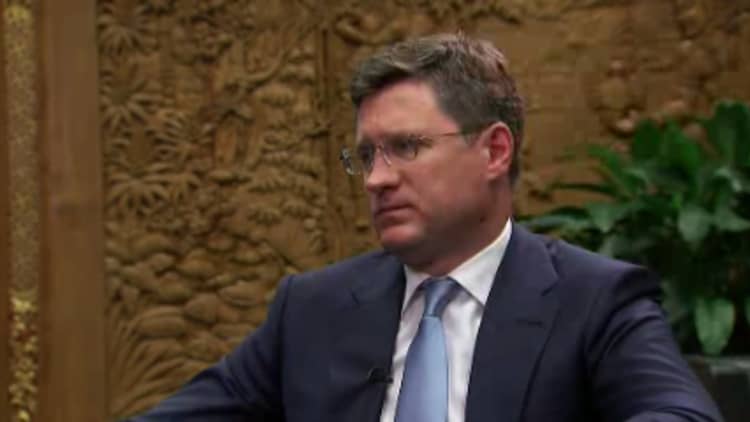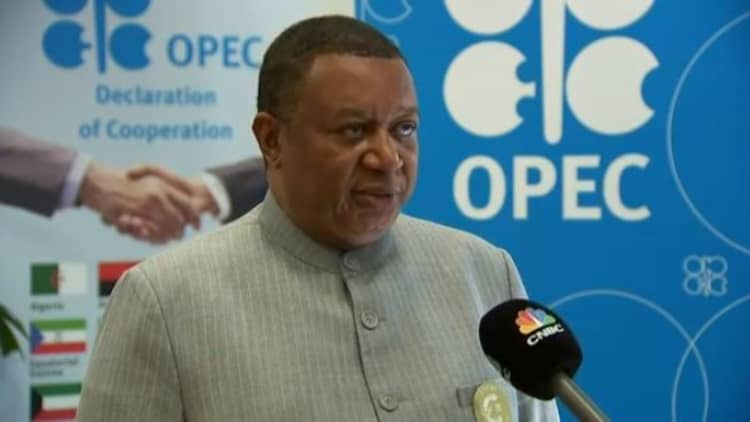Russian Energy Minister Alexander Novak said Tuesday that Iran is not the cause of instability in the Persian Gulf and that sanctions against the country are "unlawful."
Iran's oil exports, the government's main source of revenue, have been hit hard. President Donald Trump reimposed heavy economic penalties last year in response to what his administration calls "malign activity" in the Middle East. In May, his administration ended the granting of waivers to the remaining importers of Iranian oil with the aim of slashing the country's crude exports to zero.
"As regards restrictions on Iranian exports, we support Iran and we believe that the sanctions are unlawful; they have not been approved by the UN," Novak told CNBC's Dan Murphy in Vienna, according to a translation.

The energy minister added that he didn't think Iran should be considered as the cause of the unstable situation in the region.
"These steps seriously destabilize the situation, not only in Iran, upon whom the sanctions have been imposed, but, as we can all see, in the entire region around the Persian Gulf," he said Tuesday.
Tensions between the U.S. and Iran have escalated in recent weeks. Trump accused Tehran of being behind two attacks on oil tankers in the Persian Gulf region, which Iran denied. Then an Iranian missile shot down an American drone over the Strait of Hormuz. Iran claimed that the drone was above its territory. The channel between the borders of Iran and Oman accounts for approximately 30% of the world's seaborne oil traffic.

OPEC agreement
OPEC, along with other oil suppliers including Russia, reached a deal this week to extend supply cuts until March 2020, as producers attempt to prop up crude prices. International benchmark Brent crude traded at $64.84 Tuesday afternoon, down around 0.34%, while U.S. West Texas Intermediate (WTI) stood at $58.88, approximately 0.37% lower.
A deal already in place to support prices started in January and reduces production by 1.2 million barrels per day. The extension sees those terms extended until March next year. Including Russia, there were 10 non-OPEC nations present at the meeting at OPEC's headquarters in Vienna this week.
The United States, one of the world's major oil producers, is not involved in the discussions and is not bound by any agreement. Trump has previously criticized OPEC for keeping oil prices "artificially very high" although some have noted that U.S. sanctions on Venezuela and Iran have contributed to a rise in the cost of a barrel.


